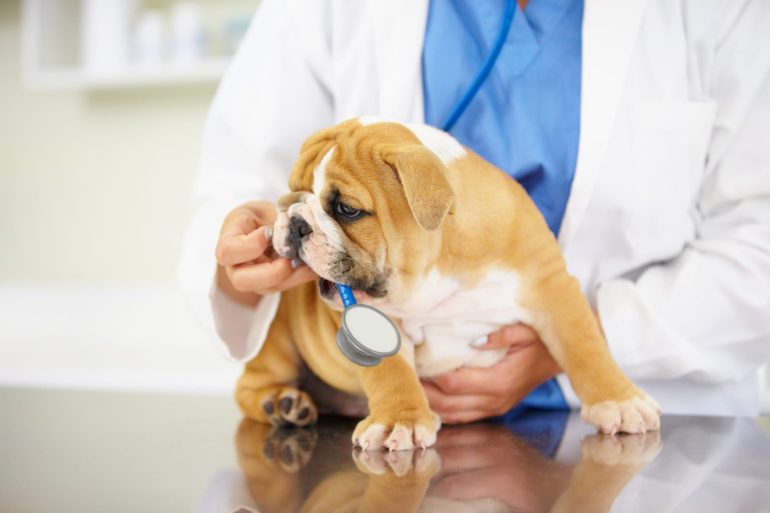Vancouver, BC (November 5, 2024) – Pets aren’t just companions — they are cherished members of our families, who often spend more time at home than their humans. With Carbon Monoxide Awareness Week underway (running November 1 to 7, 2024), Technical Safety BC and the BC SPCA are teaming up to help British Columbians catch signs of carbon monoxide poisoning early in their furry friends.
Exposure to carbon monoxide — produced by burning carbon fuels such as propane, natural gas, oil, wood, charcoal, alcohol, kerosine, or gasoline — can interfere with the body’s ability to absorb oxygen. That could lead to serious illness or death, in both humans and our pets.
Often referred to as the ‘silent killer,’ carbon monoxide is colourless, odourless, and tasteless, and pets can often show signs of exposure before humans do. Carbon monoxide exposure symptoms in pets include:
- Weakness
- Depression
- Vomiting
- Seizures
- Difficulty breathing
- Respiratory and cardiac disturbances
- Permanent deafness and blindness
- Coma
“As the weather gets colder, we close windows and vents and start using our gas heating appliances more often. If gas appliances are not working properly it can result in dangerous carbon monoxide incidents that could affect people and pets. This is why knowing the symptoms of carbon monoxide exposure and taking precautions like having a working carbon monoxide detector and hiring a licensed contractor to regularly inspect gas appliances are so important,” says Ryan Hazlett, Technical Safety BC’s leader, incident investigation.
Along with installing a carbon monoxide detector, other ways to prevent carbon monoxide exposure include:
- Never ignoring the carbon monoxide alarm when it goes off
- Never leaving your pet in an enclosed garage with the vehicle running
- Never operating portable fuel-burning devices, such as camp stoves, barbeques or generators indoors or in closed spaces
- Scheduling an annual inspection of your gas appliances by a licensed contractor or qualified individual.
“While they don’t use words, our pets often know how to tell us something is wrong through their behaviour. We all know stories where pets have warned their humans of impending danger. This is just another example,” says Dr. Kyla Townsend, veterinarian with the BC SPCA. “Paying attention to irritable or unusual behaviour in our pets is crucial as it’s often a sign that something is wrong. These could all be signs of carbon monoxide exposure.”
So far this year in BC, there have been two significant carbon monoxide exposure incidents involving pets. One of the incidents occurred at the BC SPCA’s Maple Ridge community animal centre. All the animals and employees were evacuated safely. Following the incident, where not already present, the BC SPCA has installed CO detectors in all of the relevant community animal centres, clinics, and hospitals as well as the BC SPCA’s provincial office where gas fired appliances exist.
Sadly, the other incident that occurred in a home resulted in the death of a family pet. These incidents highlight the importance of installing carbon monoxide detectors, knowing the symptoms of carbon monoxide exposure in people and pets, and regularly maintaining and servicing gas appliances using a qualified person. Those appliances include gas-fired furnaces, boilers, hot water tanks, stoves, dryers, and fireplaces.
The risk of carbon monoxide exposure is Technical Safety BC’s top safety risk due to its severity and because many people aren’t aware of its causes or how they can prevent and detect it. If you believe your pet or people in your household are experiencing carbon monoxide poisoning, or if your carbon monoxide alarm goes off, get everyone out of the building, call 911 or your local emergency number, and seek medical attention for you and your pets.
You can find more information on carbon monoxide safety here.
About Technical Safety BC
Technical Safety BC is an independent, self-funded organization that oversees the safe installation and operation of technical systems and equipment. In addition to issuing licences, certificates, and permits it works with industry to reduce safety risks through assessment, education and outreach, incident investigations, and enforcement. For more information, visit https://www.technicalsafetybc.ca
About BC SPCA
The BC SPCA is a non-profit organization funded primarily by public donations. Our mission is to protect and enhance the quality of life for domestic, farm, and wild animals in British Columbia through a wide range of services, including the enforcement of animal cruelty laws, emergency rescue and treatment, sheltering and adoption of homeless and abused animals, humane education, advocacy, farm animal welfare, spay/neuter programs and other outreach services, and wildlife rescue and rehabilitation.



